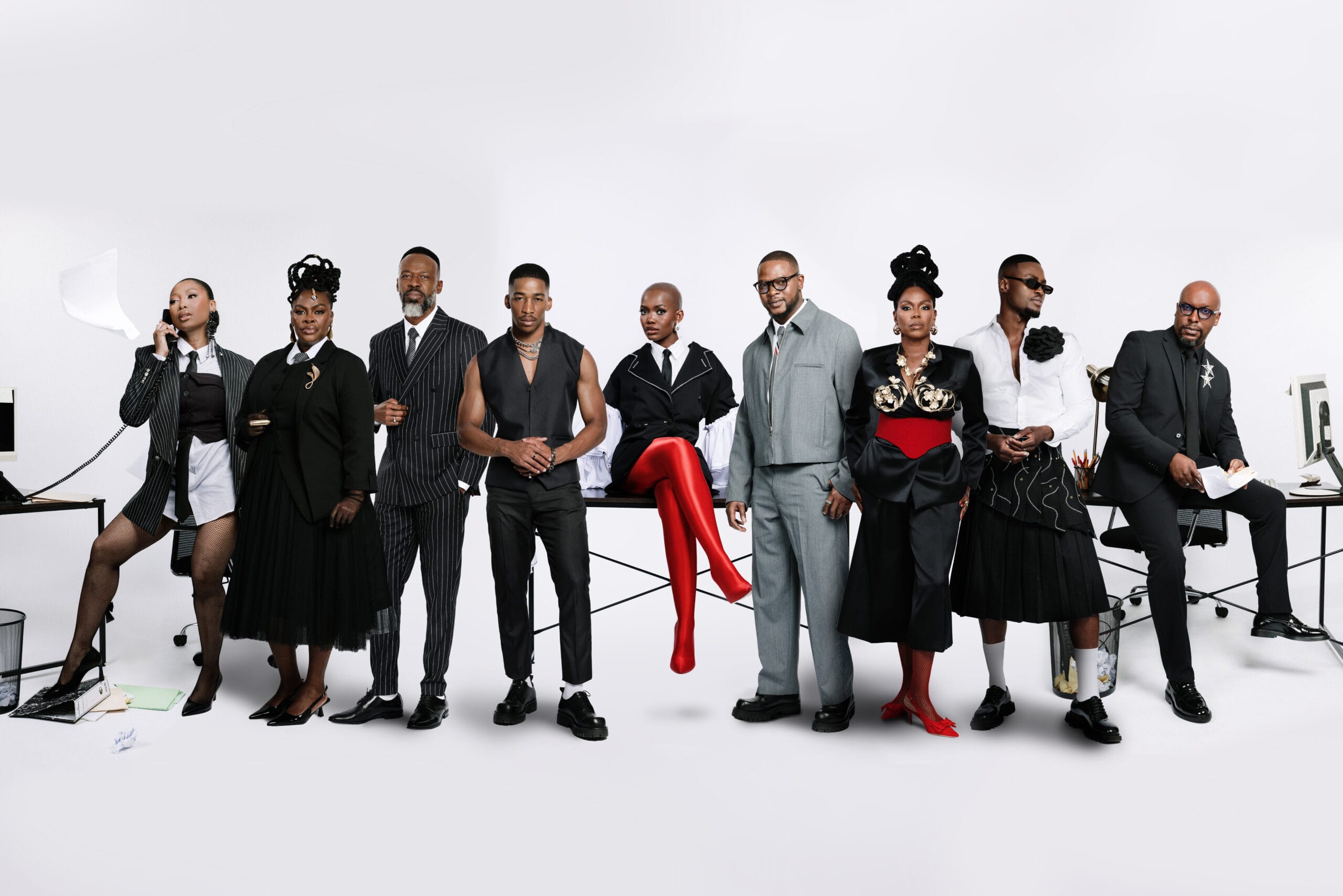The release of Mikhalé Jones’ second album Too Many Promises, comes after a turbulent time, during which she managed to navigate the complexities of the music industry and ultimately gained her artistic independence. The artist spoke to Nounouche Magazine about how she is in control of her own destiny.
“In the beginning, I didn’t really know much. I was just making music because it felt good. Luckily, with my first project, I immediately got signed. From there, the label signed me up for everything, recalls Mikhalé, as we begin our interview. She talks about where it all started for her as we discuss the music business and her making the transition to understanding the legal side of it. “Now that I’ve left the label, I have my publishers, and everything goes through them. When it comes to admin, I ask them what’s happening with earnings, whether everything is in order. It’s tricky to navigate, but I won’t lie—there are still a few things I don’t fully understand.”
One of those things was understanding the actual process once she registered with SAMRO – the Southern African Music Rights Organisation. She was surprised to discover that once registered there was a two-year waiting period before eligibility to earn money. “And your music has to be active during that period. Only then will you be registered and eligible to earn money. Before, I thought you just registered and it’s done.”

Sharing advice for artists just starting out, Mikhalé stresses the importance of doing research. “I think it’s crucial to start off with the admin. If you can, do your research on SAMRO and other organisations that help you get paid. When I left the label and signed up with TuneCore as my distributor, they essentially acted as my publishers too. They collect all the revenue for you from streaming platforms, and all you need is a registered bank account. As long as you have a bank account, you can transfer the funds from your distributor to your account because you end up earning in dollars on DistroKid and TuneCore.”
Mikhalé opened up more about her music career and where it all began. “I was 17 when I made my first song. It was pure passion, getting into the studio for the sake of music. You just link up with a producer who thinks you’re dope, and vice versa. You don’t think about things like how you’re going to make money or who has to pay whom. At least, that’s what I remember from my first song. I remember just walking into the studio thinking, ‘I’m going to make a song.’ Back then, we were still uploading to DataFileHost, putting music out on those platforms without earning a single cent! We were just doing it for the love of the music, man.”

“If you listen to my first album, it is what it is—I talk about a phase in my life when I went through a breakup. It was my first heartbreak ever. I drew inspiration from every single feeling that comes with a broken heart—the anger, the pain. All those emotions I personally experienced, I put into the music. As cliché as it sounds, music is like my diary—the things I don’t get to say. For example, if you break up with an ex who cheated on you, of course, you can’t say, ‘I miss you, I love you, I want you back.’ Even if I’m feeling that way, I won’t say it to them, but I will put it in a song,” Mikhalé shares, explaining her writing process, “Even with Too Many Promises it’s the same thing—I talk about my own experiences. Being signed to a label and then disappointed—I compare it to a relationship so that others can relate. So even if someone listening to that song wasn’t signed, they would still understand because of the relationship comparison. It’s about two parties coming together to form a union, and then disappointment happens, and it’s about how I deal with the heartbreak after that.”
Many artists dream of getting signed to a major label. However, Mikhalé’s experience was different. She opens up about her feelings during her time at Def Jam. “While I was signed —and silenced (you can call it that, I guess)— I wasn’t able to release music as often, but I continued making music for myself, not for others, because I knew the songs were never going to come out. Whether I wanted them to or not, they were never going to be released. I started to figure out loopholes. I went around asking everyone how I could release music without getting into legal trouble because I really still wanted to release music. It felt like I was sitting with all these stories I wanted to tell, but nobody could hear them. Sitting there quietly really irritated the living daylights out of me. I didn’t enjoy it at all. I think it was about two years of just sitting with content and the label telling me, ‘The music is too R&B’ or ‘The music isn’t going to sell because radio doesn’t listen to R&B like that anymore.’ I then questioned why they signed me in the first place because they signed me as an R&B artist. This was around the time when the Afrobeats and Amapiano wave was just starting to kick in.”

“People who run the label know nothing about music. It’s really unfortunate, and we see it every day. Everyone is just chasing the next hot Afrobeats or Amapiano artist. Nobody is thinking about what the next wave will be after this. You can’t only have Amapiano artists signed to your label. You need a variety because once the next wave kicks in, you’re scrambling for the next hot artist. The label is such a scam, but with every interview I do, I always say that I can’t just sit here and bash the label entirely. There was some good that came with it. I got to network while I was signed. I got to understand who the people pulling the strings behind the scenes were. I got to understand that side of the business, which helped me become a better independent artist. Now I understand that I need a publisher and a live booking agent. I understand all this because I was in the system.”
Speaking about her favourite form of expression, Mikhalé shares that she’s currently leaning more toward visuals and styling. “I’m leaning so much more toward visuals, styling, and fashion. I’ve been enjoying putting together my content more than anything. Yes, it’s stressful—don’t get me wrong. It has me in a chokehold sometimes. But it’s so much fun exploring different looks, collaborating with photographers and videographers, and testing the limits. It’s a lot of creative freedom that I didn’t have before. I’m having the time of my life! My least favourite part of creating right now is the songwriting. I’ve given all I have in me at this moment. The music I have out now reflects the phase of life I’ve come out of, and I’m done with that phase. I’m obviously entering a new one, but I have to live in this new phase first before I can say anything about it. I’m new to being independent and running my life by myself. The truth is, I don’t know what to write about anymore.”
Speaking more about her project, Mikhalé shares a few highlights from Too Many Promises.
“Let me be honest. When I left the label, I wondered how I was going to have a music career. Thoughts of people thinking I had fallen off started to surface. I was quiet for two years, so I thought people had forgotten about me. But when I put the music out, it did better in the first week than my very first album. That was so insane to me.”

In terms of numbers, Too Many Promises did about 60 to 70 000 in the first week of release.
“To think that my first EP took two months to reach 25 000. So, no, I didn’t fall off—I don’t know where that thought came from. All the negative things I thought about myself were very much tied to the label. The label kept me quiet for so long that I began to sit with my thoughts. And when I sit too long with my thoughts, I begin to spiral and end up in an ugly place, which is exactly what happened. I only started to get away from those thoughts when I started to move again, especially after entering the MTN Pulse competition. After winning that, I realised I just needed another moment to prove to myself that the label signed me because of what I did by myself. They signed me because of the music I made on my own. They found me because of what I was doing independently. I just needed to continue making music by myself like I was before the label interrupted me. I needed to keep riding that wave. In the first week of Too Many Promises being released, two songs alone were already sitting at 40,000 streams. By the time the album was out, we were close to 100,000.”
As we end our interview, I ask Mikhalé how she deals with imposter syndrome. “Honestly, I’ve learned that sitting still is the problem. The biggest issue with imposter syndrome is listening to that voice and accepting it as truth. It’s something you can’t run away from—everyone will experience it. I’ve come to accept that. I’m going to have those days where I shoot content and ask myself, ‘Do I really want to post this video? Is the grading what I expected?’ If I just sit there with the content and don’t release it, then I’m doing myself an injustice. It’s in the movement that you overcome imposter syndrome. That’s what I’ve learned. My new favourite word is ‘movement.’ Keep moving—if you sit still, that’s where the problem starts.”
With Too Many Promises making waves and her creative spirit thriving in areas like visuals and styling, Mikhalé is carving out her own space in the industry- free from limitations. Continuing to embrace her independence and exploring new creative avenues.






No Comments